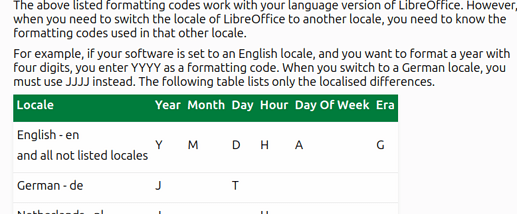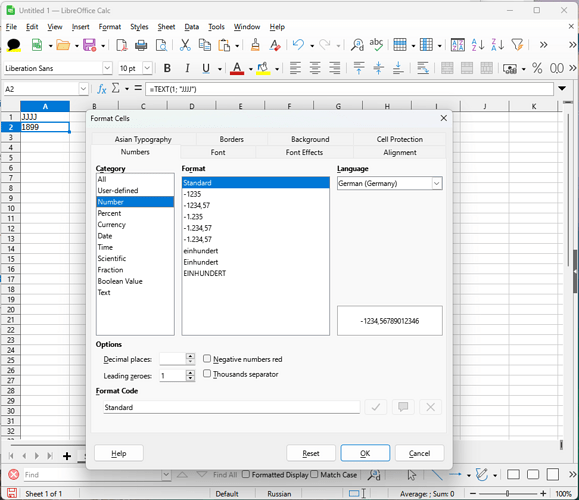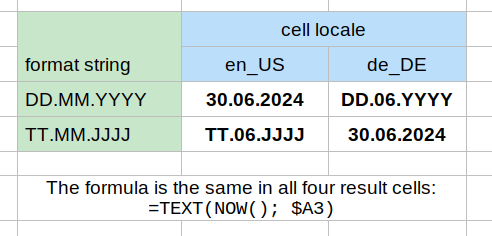I have a date value in cell A1, for example “2024-06-30”.
Another cell should display “Date: 30.06.2024”.
With an English locale, I would use:
=CONCAT("Date: "; TEXT(A1; "DD.MM.YYYY"))
But my LO uses the German locale by default, so I have to use:
=CONCAT("Date: "; TEXT(A1; "TT.MM.JJJJ"))
instead.
Can I safely share this document with co-workers whose LO may use a different locale?
Since the document was created and saved with the German locale, will the “TT.MM.JJJJ” format work as intended?
Which format string would a person using an English locale see in the formula?
Personally, I think it’s very unfortunate that date formats like D or Y were ever localized.
edit: here’s a example file for illustration: test-format-l10n.ods (9.7 KB)
edit 2: adjusted sample document to better match the formats mentioned in the text: test-format-l10n-2.ods (10.0 KB)





